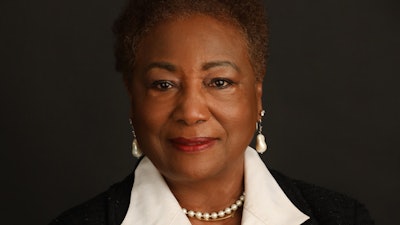There are many reasons for HBCUs and community colleges to form partnerships in today's higher education environment. Formally, a partnership is an agreement where two institutions come together for mutual goals. What, then, is the mutual goal between HBCUs and community colleges? It is to fight a common enemy: inequity in educational attainment and outcomes of Black students.
HBCUs represent just 3% of the nation’s institutions of higher learning, but they graduate nearly 20% of African Americans with degrees. In addition, they graduate more than 50% of African American professionals and public school teachers and most African American doctoral degree recipients. Similarly, community colleges enroll 52% of all African Americans in higher education; large percentages of these same students do not graduate or transfer to a four-year college or university.
Inequity in its various forms (economic, political and social) defines our times. Confronting inequalities has moved to the forefront of national policy debates with a consensus that all should enjoy equal access to opportunity.
 Dr. Christine J. McPhail
Dr. Christine J. McPhail
The question then arises: If it’s that simple, why aren’t the two sectors working strategically to promote more significant outcomes for African American students? One of the reasons for a continued disconnect between the two sectors may be that each views the other as a competitor. Also, HBCUs’ and community colleges’ relationships may have been strained due to differing institutional cultures and negative media coverage of the two.
The situation is unfortunate because if the higher education leaders, students and their families fully understand the ultimate benefits that an HBCU-community college transfer agreement could have on the academic attainment of the student, educators may become more intentional about helping students navigate the complex transfer waters; they may even see the establishment of transfer agreements between the sectors as a greater priority.
Educators within community colleges and HBCUs fail to realize that they share more similarities (especially at the undergraduate level) than differences. Couple this disconnect with HBCU practitioners who may feel that the community college transfer student may not be academically prepared and the community college practitioner who may be unfamiliar with the historical success of HBCUs in educating African American students, and miscommunication and misinformation about both sectors is rife.
While there are some community college and HBCU leaders who have collaborated to promote transfer opportunities for African American students (i.e., the California Community College/HBCU Transfer Guarantee Agreement); many more HBCUs and community colleges are lacking the experience, education or strategies to develop positive reciprocal relationships.
I am working with our team at Saint Augustine’s University to reach out to community colleges to create a transfer culture that will provide a pathway for community college students to make a seamless transition to our university. We envision agreements with community colleges that will provide transfer students with an academic roadmap between the two sectors. I understand that effective transfer agreements and partnerships take time and resources to develop; however, once they are generated and sustained, the benefits are immeasurable for the students and families. I encourage HBCU and community college leaders to join forces to create statewide strategic transfer plans aligned with their state's overall higher education objectives. Such an agreement by its very nature would require new state policy, informed by academic research, to enable changes to existing practice — necessitating collaboration between these two sectors.
If states are serious about increasing degree attainment outcomes for African American students, their legislatures must be willing to fund joint efforts between HBCUs and community colleges. Establishing formal statewide transfer agreements between HBCUs and community colleges is a means of advancing equity-minded educational policies. Students, local communities and states benefit when institutions work together to improve outcomes for all learners.
Dr. Christine Johnson McPhail is president of Saint Augustine’s University (N.C.). She is Founding Director Emerita, Morgan State University CCLP (MD); and President Emerita, Cypress College (CA).
The Roueche Center Forum is co-edited by Drs. John E. Roueche and Margaretta B. Mathis of the John E. Roueche Center for Community College Leadership, Department of Educational Leadership, College of Education, Kansas State University.
This article originally appeared in the August 19, 2021 edition of Diverse. Read it here.















